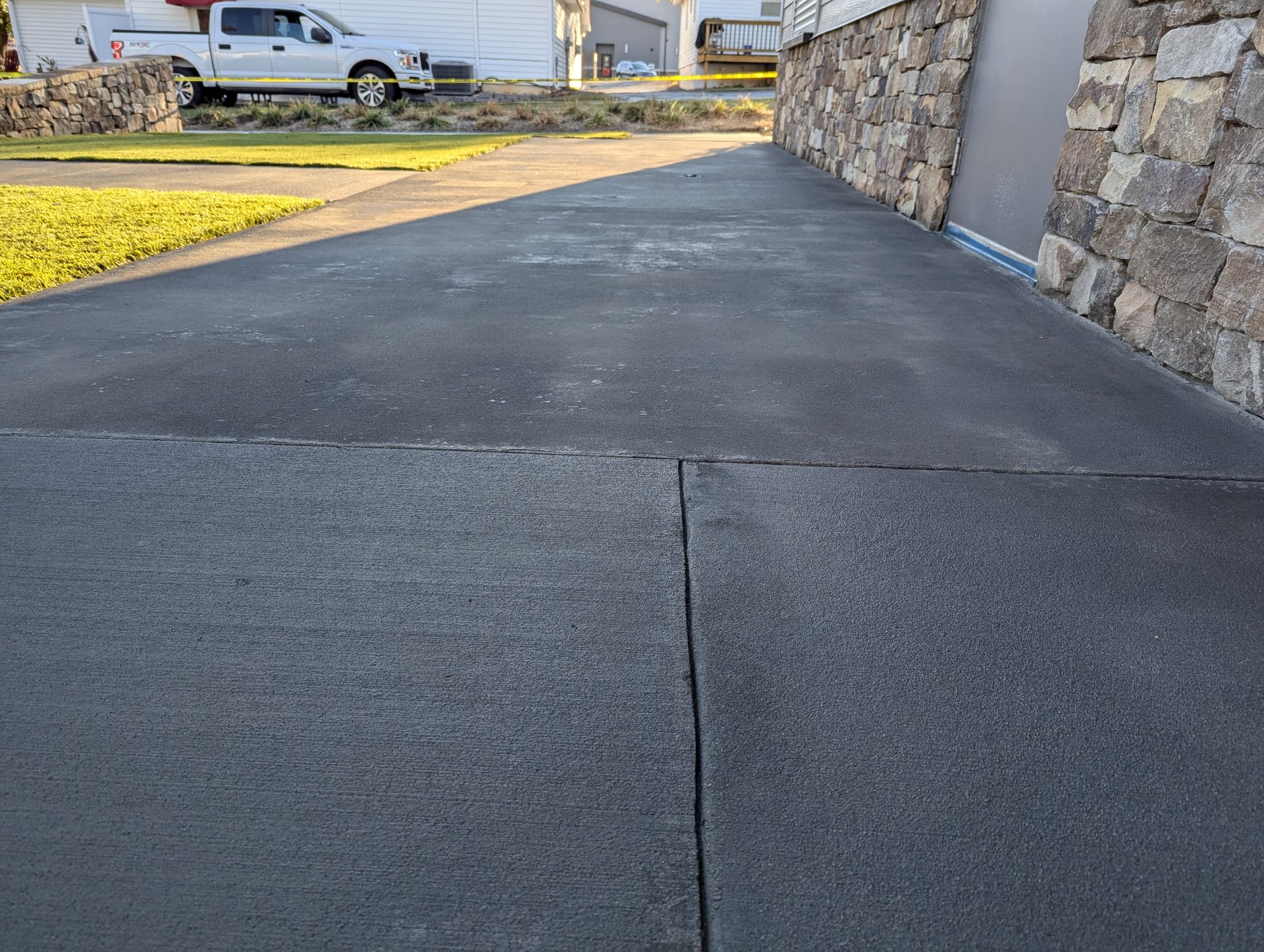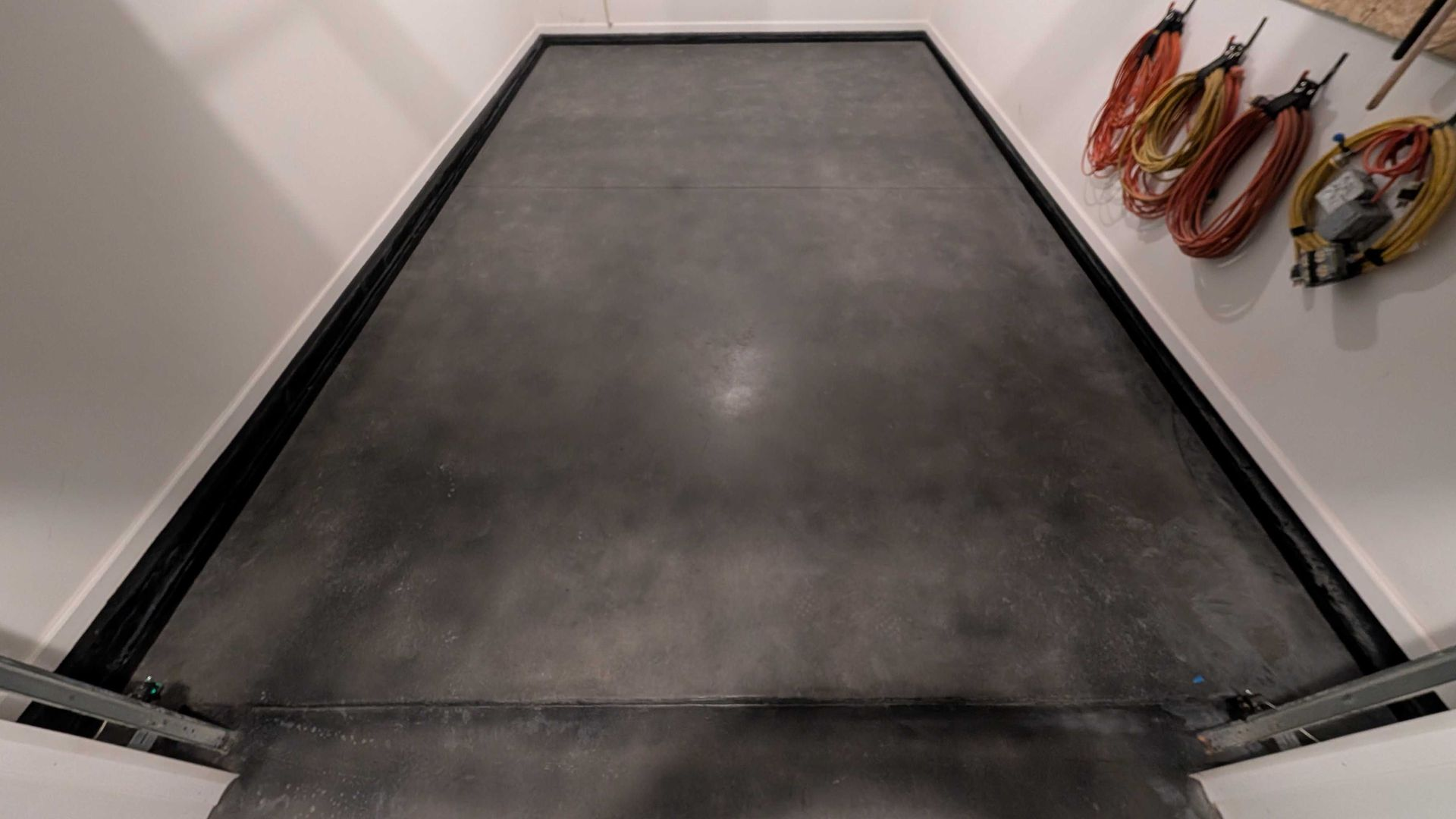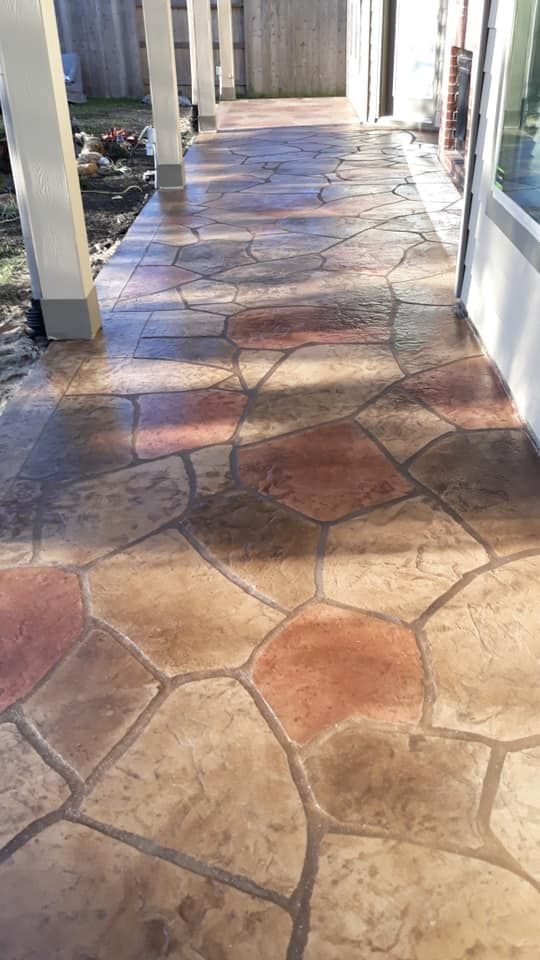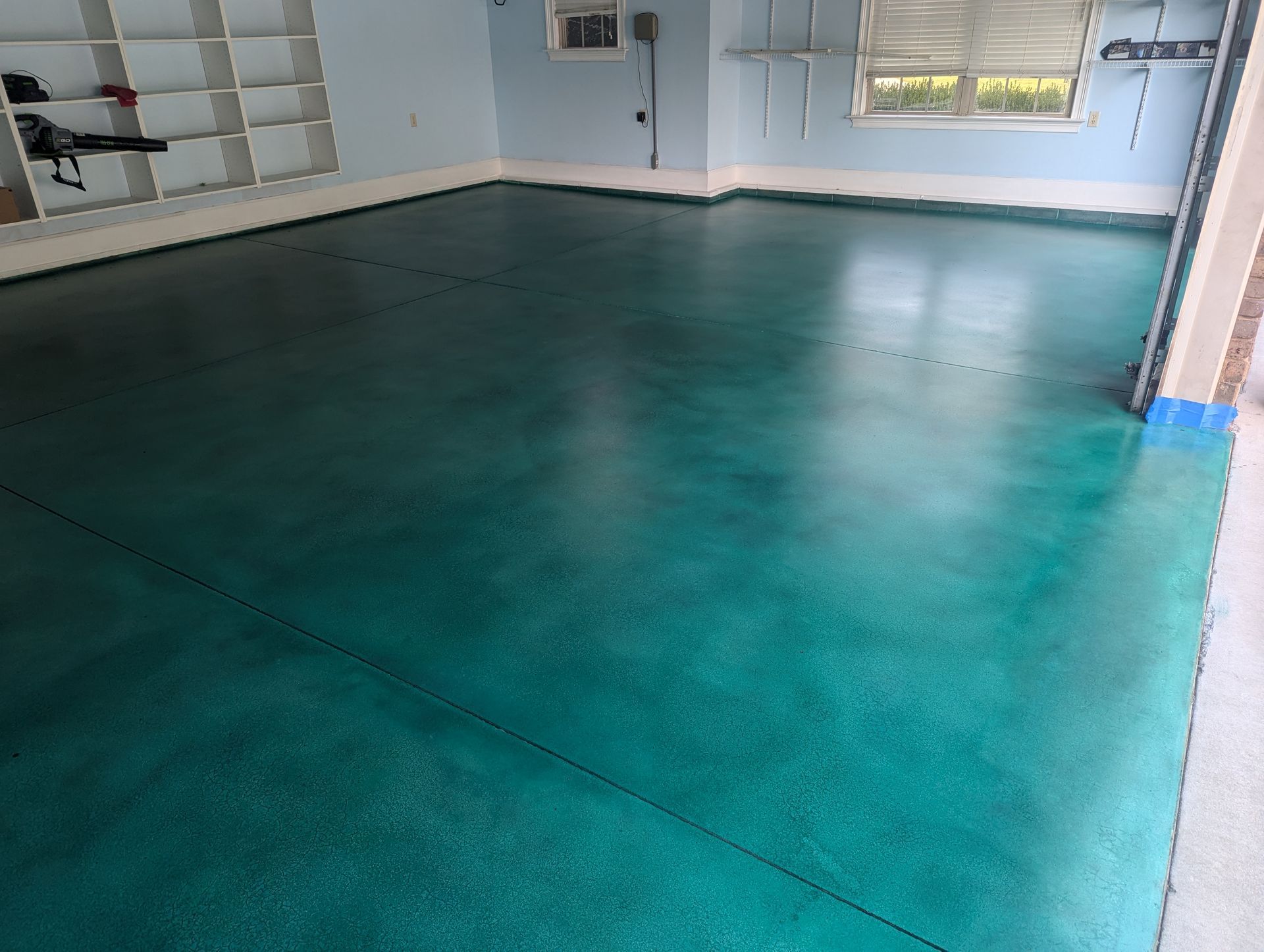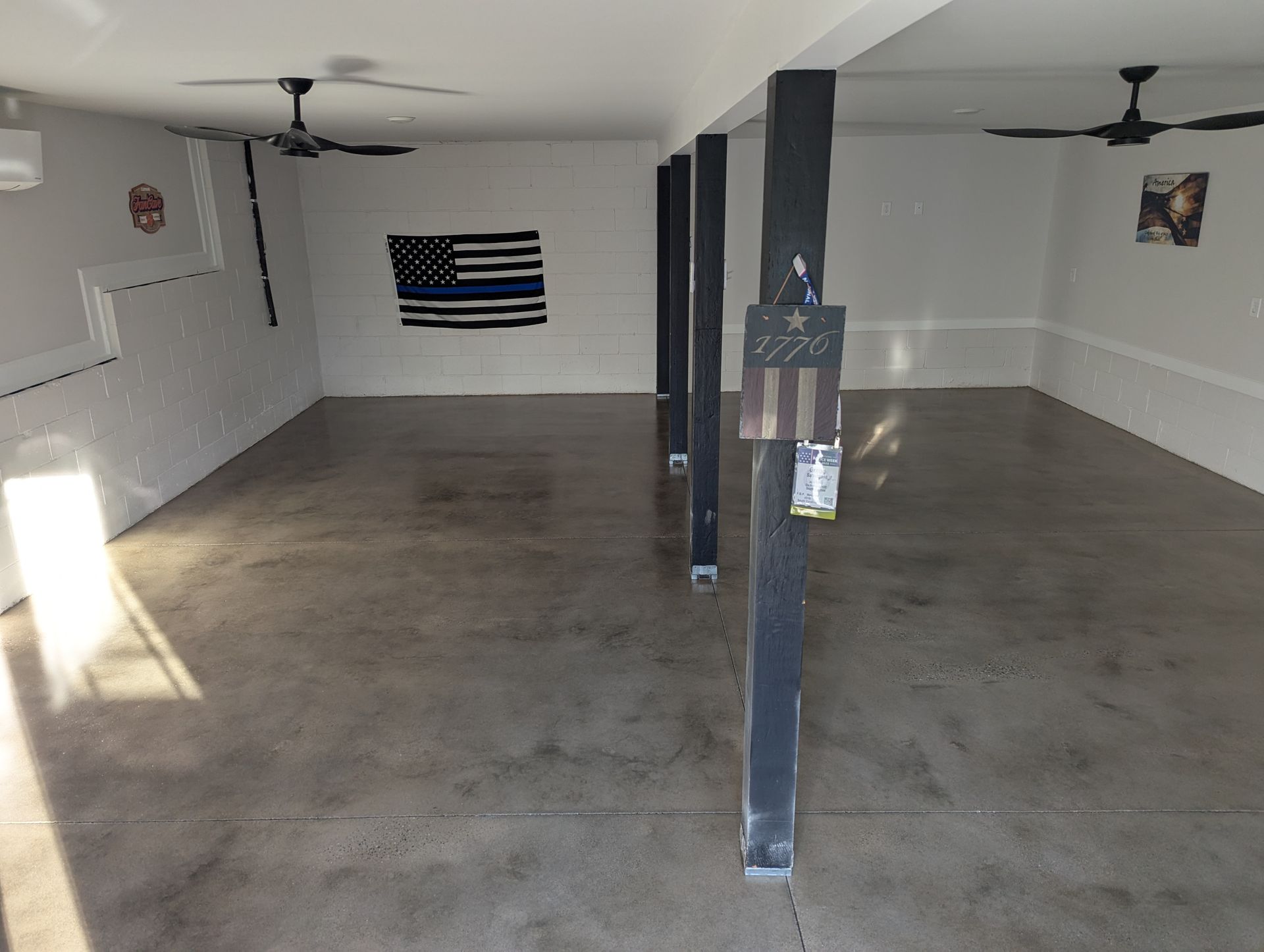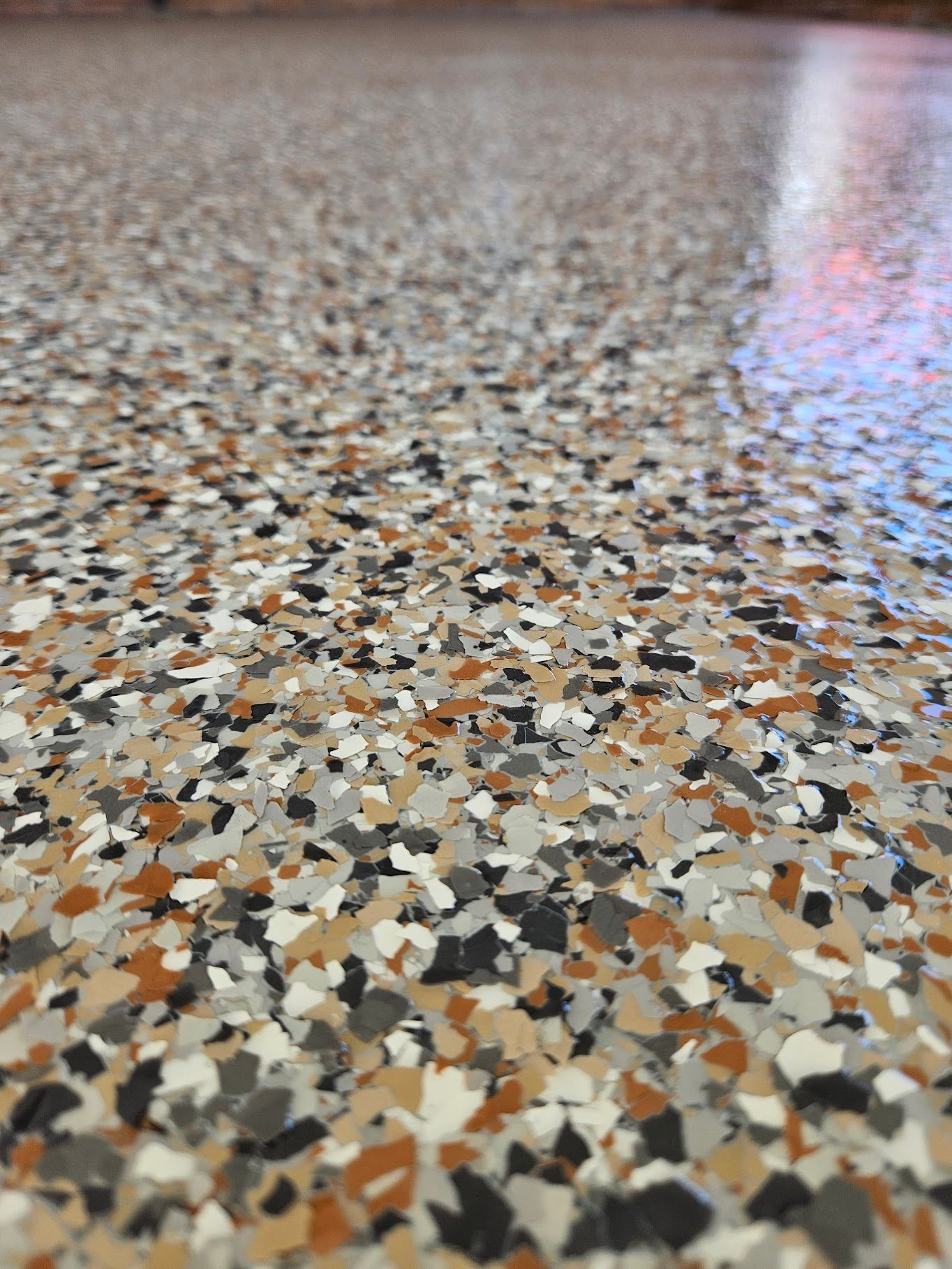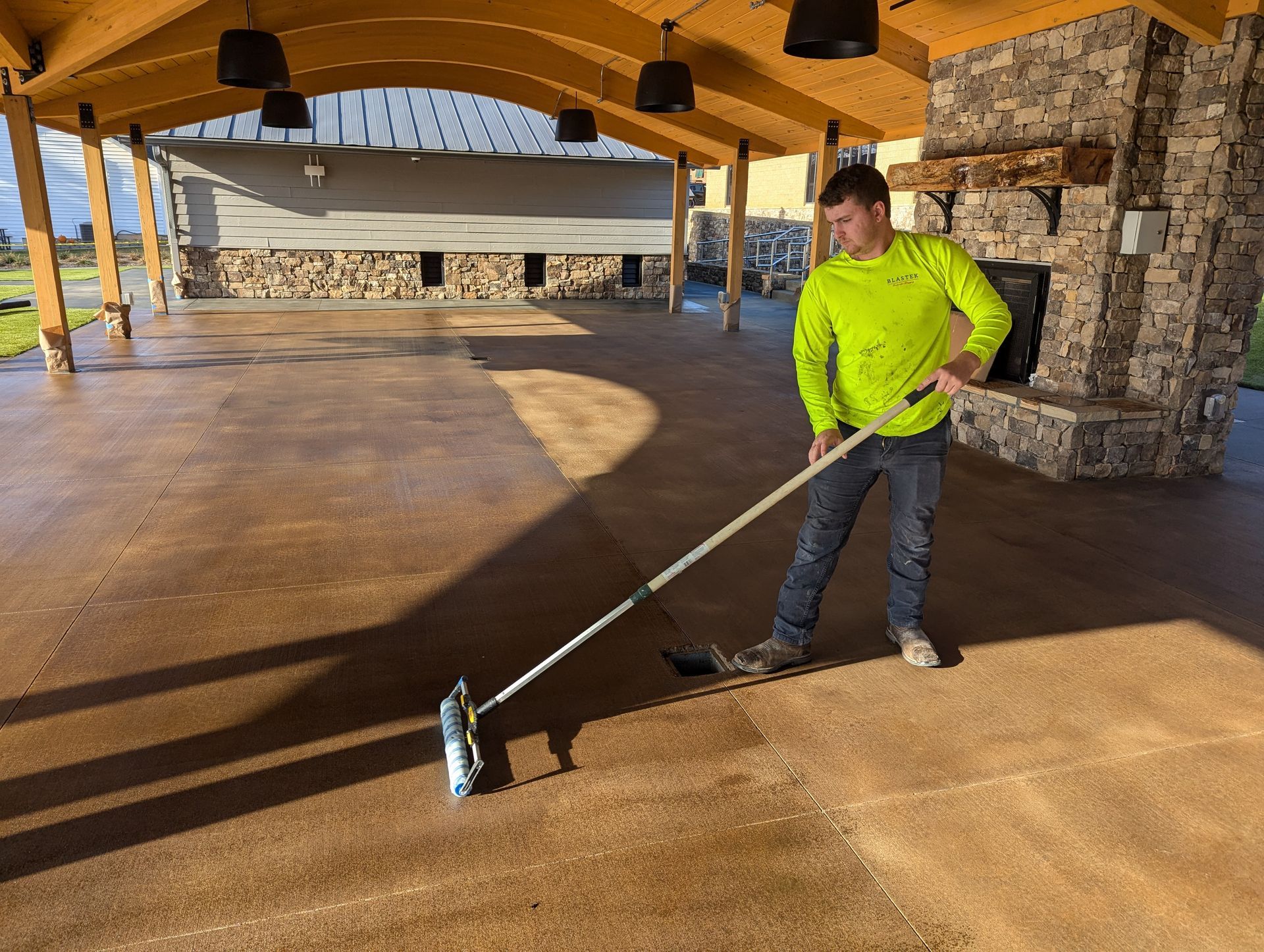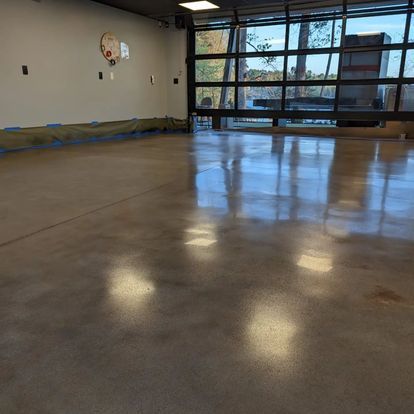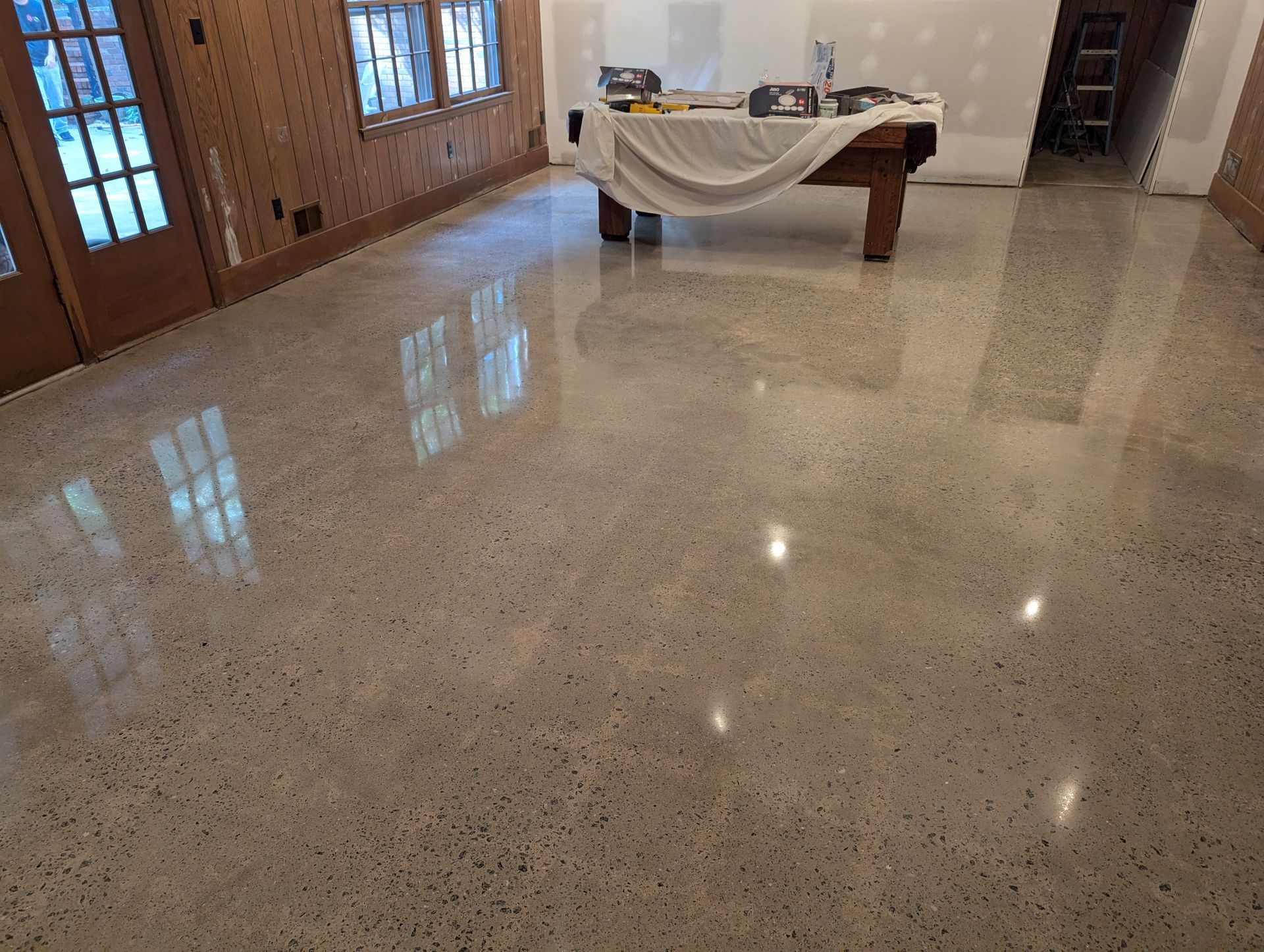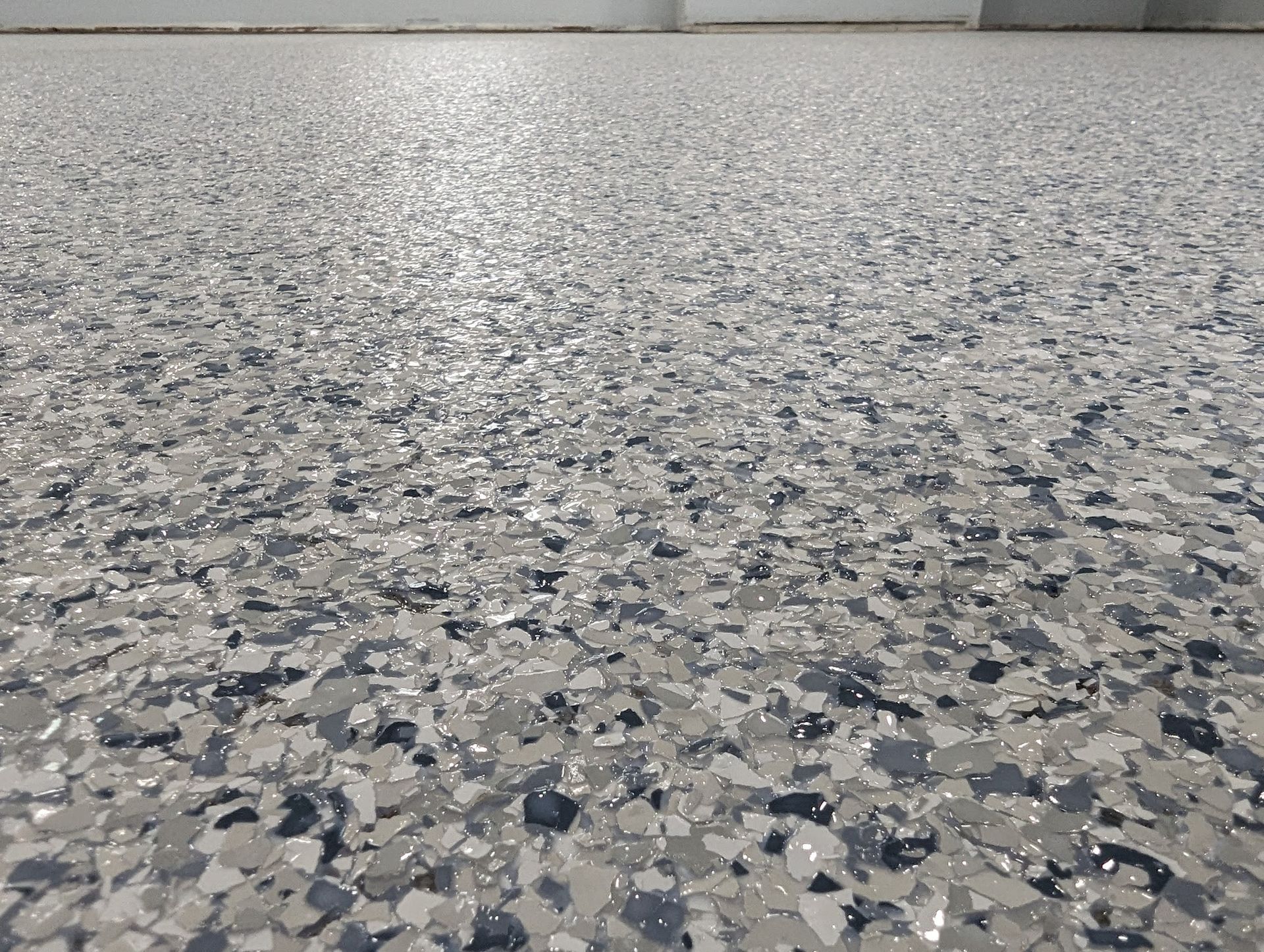Concrete Sealing: Protect Against Stains & Erosion
Concrete might look solid, but without a sealer, it can stain, crack, and wear down. Water, oil, and chemicals seep in, causing damage that gets worse over time. Sealing adds a protective layer that keeps concrete strong, clean, and in good shape for years.
Driveways, patios, and garage floors all benefit from
proper sealing, making maintenance easier and preventing costly repairs.
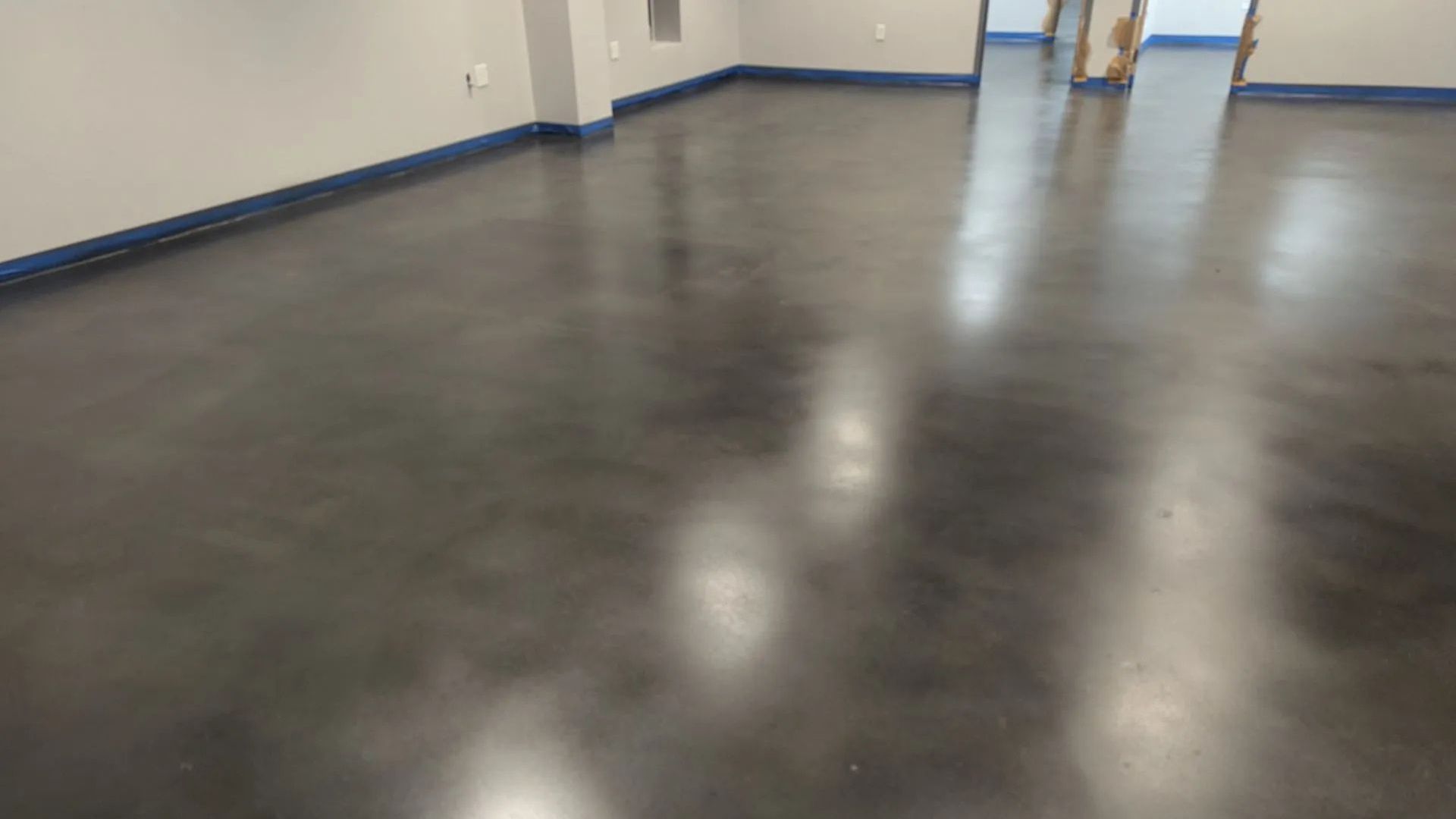
Why Does Concrete Need to Be Sealed?
Concrete might look solid, but it’s actually pretty absorbent. It soaks up water, oil, and other liquids like a sponge. Without a protective seal, it stains, cracks, and wears down over time.
Here’s why sealing it is a smart move:
Keeps Water from Causing Damage
- Stops moisture from soaking in – Rain, snow, and humidity can weaken unsealed concrete.
- Prevents cracks in cold weather – Water that gets inside can freeze and expand, causing cracks.
- Reduces surface wear – Driveways, patios, and walkways break down faster without a sealer.
Protects Against Stains
- Oil and grease won’t sink in – Spills on a sealed surface stay on top, making cleanup easier.
- Prevents ugly discoloration – Chemicals like de-icers and pool treatments won’t leave permanent marks.
Makes Concrete Last Longer
- Stops chipping and cracking – A sealed surface holds up better over time.
- Less maintenance, fewer repairs – Sealed concrete stays cleaner and stronger with less effort.
Types of Concrete Sealers & Their Benefits
Concrete needs the right sealer to stay protected. Here are the main types and what they do:
Penetrating Sealers – Best for Outdoor Concrete
These soak into the concrete to block water and moisture.
- Used for concrete driveways, patios, sidewalks, and pool decks.
- Helps prevent cracks, erosion, and surface damage.
- Types: Silane, siloxane, silicate, and siliconate.
- Lasts 5–10 years.
Acrylic Sealers – Best for Decorative Concrete
These form a thin layer on top of the concrete.
- Used for stamped concrete, patios, and pool decks.
- Available in glossy, satin, or matte finishes.
- Protects against light stains and sun damage.
- Wears down faster, lasts 1–3 years.
Epoxy & Polyurethane Sealers – Best for High Traffic Areas
These create a thick, strong coating.
- Epoxy: Glossy and durable, used for garages, basements, and industrial floors. Not UV-resistant.
- Polyurethane: Flexible, UV-resistant, and works for homes and businesses. Resists chemicals and heavy wear.
- Lasts 5+ years.
The right sealer depends on where the concrete is and how much protection it needs.
When Should You Seal Concrete?
Sealing at the right time keeps concrete strong and looking good. Do it too soon, and it won’t stick properly. Wait too long, and moisture and stains can cause damage. Here’s when to do it:
Sealing New Concrete
- Wait at least 28 days after pouring. Fresh concrete needs time to dry and harden.
- Sealing too early can trap moisture, leading to cracks and weak spots.
Resealing Older Concrete
- Do a quick test – Sprinkle water on the surface. If it soaks in instead of beading up, it’s time to reseal.
- How often you reseal depends on the type:
- Penetrating sealers: Every 5–10 years
- Acrylic sealers: Every 1–3 years
- Epoxy or polyurethane: Every 5+ years
Best Conditions for Sealing
- Apply on a dry day with temperatures between 50°F and 85°F.
- Avoid sealing in extreme heat, cold, or when rain is expected.
Sealing at the right time means better protection, fewer repairs, and a longer-lasting surface.
Step-by-Step Guide to Sealing Concrete
Sealing concrete might sound simple, but getting it right takes skill. A bad application can lead to streaks, bubbling, or an uneven finish that’s tough to fix. Leave it to the pros for a long-lasting, even coat that protects your investment.
If you're curious about the process, here’s what it involves:
Step 1: Clean the Surface
- Sweep away dirt and debris.
- Wash with water and mild detergent or use a pressure washer.
- Scrub oil stains with a degreaser.
- Let the surface dry for at least 24 hours.
Step 2: Choose the Right Sealer
New Paragraph
Step 3: Apply the Sealer (This Is Where Most DIY Jobs Go Wrong)
- Use a roller, sprayer, or brush for even coverage.
- Apply thin layers—thick coats won’t dry properly and can peel.
- If a second coat is needed, wait 2–4 hours before applying.
Step 4: Let It Cure
- Acrylic sealers: Dry in 1–2 hours, fully cured in 24 hours.
- Penetrating sealers: Cure in 24–48 hours.
- Epoxy/polyurethane: Needs at least 48 hours before use.
A professional knows how to choose the right product, apply it evenly, and avoid common mistakes. If you want your concrete to last, let an expert handle the job.
Common Mistakes to Avoid
Avoid these common mistakes to ensure the sealer works properly and lasts longer.
- Not cleaning the surface – Traps dirt and stains under the sealer. Always sweep, wash, and let the concrete dry for at least 24 hours before sealing.
- Applying too much sealer – Thick layers dry unevenly and can leave a sticky surface. Apply thin, even coats for the best results.
- Sealing in bad weather – High heat, cold, or humidity can cause bubbling or improper drying. Apply when temperatures are between 50°F and 85°F on a dry day.
- Using the wrong sealer – Not all sealers work on every surface. Choose the right type based on where the concrete is and what kind of protection it needs.
Protect Your Concrete the Right Way
Sealing concrete extends its life, resists stains, and prevents moisture damage. A professional application ensures even coverage and lasting protection. Skip the risk of DIY mistakes—let the experts handle it for the best results.

